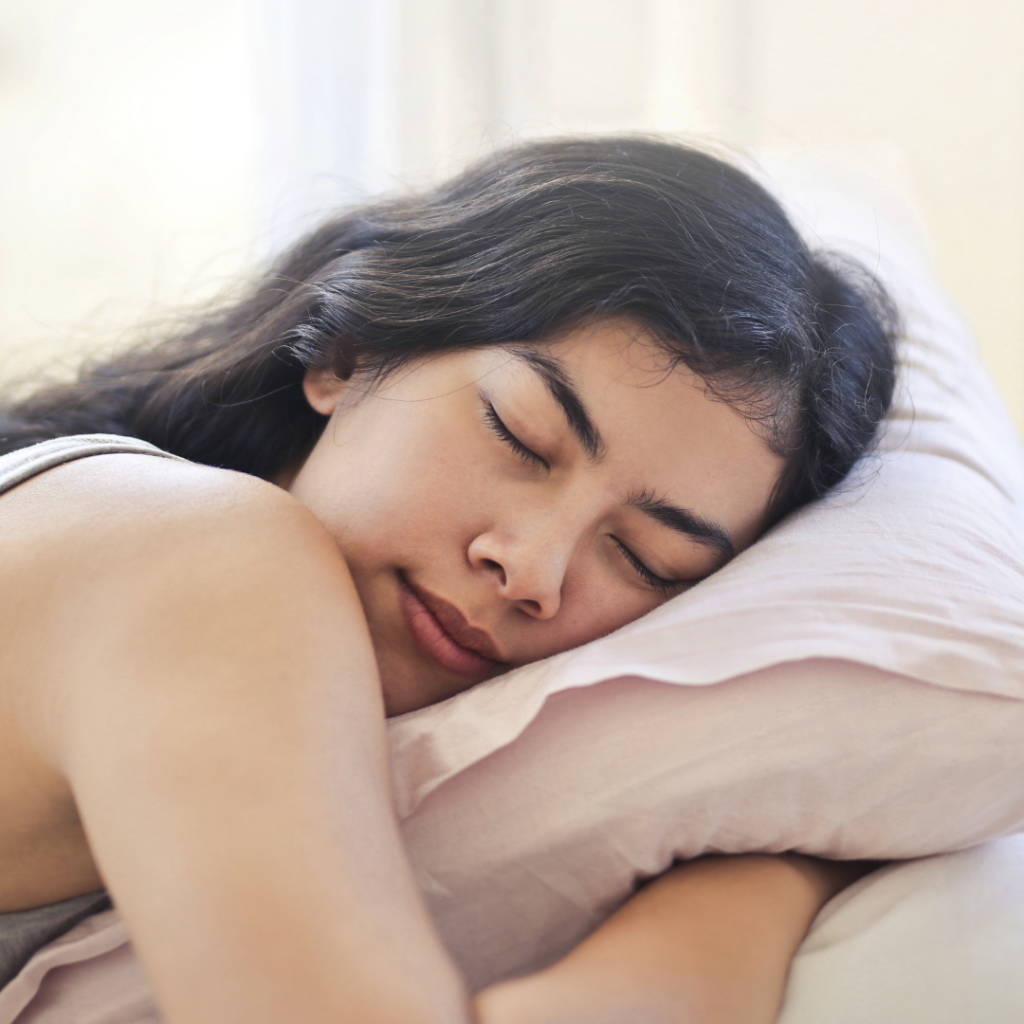Let’s face it. It feels great when you get a good night’s sleep but horrible when you don’t. There’s nothing like falling asleep quickly, sleeping through the night without any disturbances, and feeling energized after waking up. But it can be stressful and frustrating when you don’t sleep well.
You toss and turn, and you stare at the ceiling. You were hoping for a good night’s sleep, but your mind is racing, and your body won’t rest. The next day, you wake up feeling groggy and irritated and unable to concentrate at work or home.

If this sounds familiar, you’re not alone. It’s normal to have occasional sleepless nights. Maybe you had a stressful day at work, lost a job, or are going through a divorce or separation.
The good news is that this feeling shall pass. But for some people, the physical health problems associated with chronic sleeping problems (lack of sleep for 3 months or longer) increase their risk of depression, diabetes, high blood pressure, heart disease, stroke, and unintentional weight gain. They can also have decreased immune function and get sick more often.
At BIFAT Center, we want to help you focus on ways to get better sleep so you can get more satisfying sleep and optimize your health.
If you’re one of the many people who have difficulty getting good quality sleep, here are some things you can do to help get a good night’s sleep.
Trying to create a sleep-friendly environment by avoiding technology, keeping noise levels low, and dimming your bedroom lights before bed may help.
Electronics can be overstimulating and may cause you to have a harder time falling asleep. Instead, opt for more meditative and relaxing activities before bed, like aromatherapy and meditation.
You’ll also want to avoid caffeine, nicotine, and alcohol before bed. It’s recommended to avoid using alcohol or nicotine 4 hours before bed. Although alcohol may relax some people, it prevents deep and restful sleep. And, like alcohol, nicotine is linked to poor sleep quality.
Remember: Drinking any type of fluids (e.g., water, milk, tea) may cause you to have to make multiple trips to the bathroom and interrupt your sleep.
You’ll also want to avoid late-night snacks or meals that may cause problems with your digestion. For example, eating heavy, spicy, or acidic foods can cause trouble sleeping due to acid reflux and other side effects like nausea, diarrhea, and stomach pain.
Your average body temperature typically stays around 98.6°F but varies by about 2 degrees throughout the night. And our body temperature decreases about 2 hours before sleep and continues to fall during sleep — reaching a low point in the early morning.
Some people may benefit from lowering their bedroom temperature between 60°F to 68°F (e.g., thermostat, fan use, open windows, or a warm bath before bed). Doing this mimics your body’s natural attempt to cool itself down for sleep.
Remember: Warmer temperatures can cause some people to feel uncomfortable and restless and unable to fall asleep.
Not getting enough sleep can be incredibly frustrating. It can significantly affect your mood and make it difficult to get through your day. But remember, you’re not alone. The good news is an occasional sleepless night is normal, and there are many ways to get better sleep so you can get more satisfying sleep and optimize your health.


Leave a Reply